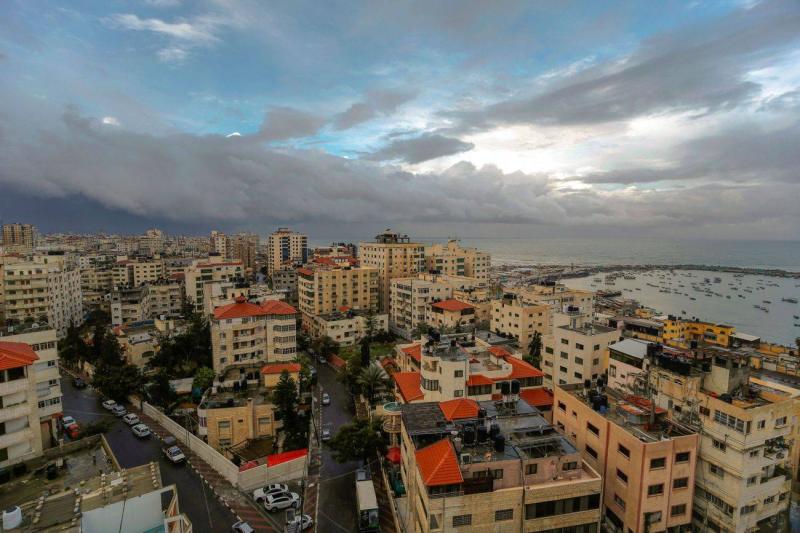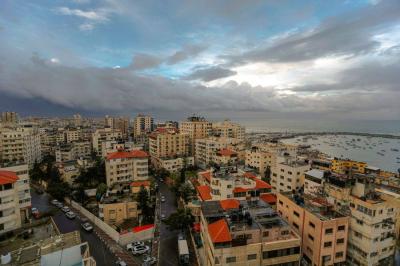If you ask "artificial intelligence" about the name Gaza outside of Palestine, you will find that Lebanon is the only country in Asia and the Arab region that has a place named after the famous Palestinian territory. This is a town in the Baalbek-Hermel Governorate, situated 870 meters above sea level, located 62 kilometers east of Beirut. Of its inhabitants, 60% have migrated in waves to countries across most continents and diaspora nations, and according to the latest census, there are 6,150 remaining. Thousands of Syrian displaced persons have sought refuge there due to internal conflict in Syria, increasing the population to over 30,000.
#### The African Gaza Empire
For those searching for Gaza, which was opened by Amr ibn al-As during the caliphate of Abu Bakr al-Siddiq, they will also find that the name was used between 1917 and 1935 for a large suburb in Adelaide, the capital of South Australia, according to information summarized by "Al-Arabiya.net," which notes that the suburb changed its name to Klemzig, of German origin, for an unknown reason.
In Africa, there are three places named Gaza: one is a province named Gaza in Mozambique, another is a region known as Gazaland between Mozambique and Zimbabwe in Southeast Africa, and the third was the name of a short-lived kingdom known as the Gaza Empire, which existed between 1824 and 1895, encompassing most of the area between Mozambique and Zimbabwe, as recounted in the video displayed above. However, the "Gaza Empire" disappeared from the map after 1895 and is no longer recognized.
The name Gaza also appears in a book published in 2018 by the University of California, titled *Gaza: An Inquest into Its Martyrdom*, authored by the American Jewish poet and literary critic Norman Finkelstein, who is internationally known for his support of the Palestinian cause and his opposition to the use of the Holocaust by Jews as a means to garner global sympathy and cover up Israeli crimes against Palestinians.
In historical texts, there is one that was published 1,170 years ago in Baghdad, titled *Al-Tabaqat Al-Kubra* by Ibn Sa'd, which recounts that Abdullah ibn Abd al-Muttalib, the father of the Prophet, went on a caravan with the Quraysh carrying their trade to Syria and Palestine. At the age of 25, he spent several days in Gaza, then the caravan passed through Yathrib (Medina) on its return, where he fell ill, forcing him to stay in the city with his maternal uncles, the Banu Adi ibn al-Najjar, for a month. Meanwhile, his wife Amina bint Wahb, pregnant with their only son in her second month, awaited his return to Mecca, but death overtook him, and he did not return.
#### Gastropods and Mollusks
As for his companions, they continued their journey, and when they arrived in Mecca, Abd al-Muttalib, the grandfather of the Prophet, asked them about his son Abdullah. They replied that they had left him with his maternal uncles due to his illness, so he sent al-Harith, his eldest son, to find him. He discovered that he had died and was buried in the house of Al-Nabigha. He returned to his father and informed him of his death, and at the end of the pregnancy, the greatest messenger, the Prophet, was born.
The "artificial intelligence" then delves into its archival data and discovers gastropods and mollusks known by the Latin name Gaza Superba, which live within shells, the most famous of which is depicted above from the Wikipedia informational site. It explains that they are found at an average depth of 180 meters under the Caribbean Sea, especially in the Los Aves Archipelago of Venezuela.
Gaza, built by the Canaanites and called "Hizati" 3,500 years ago, has a presence in the names of the most famous ancient languages, according to what "Al-Arabiya.net" read in publications by the "Palestinian National Information Center," which also mentions that the Egyptians pronounced its name "Ghizato," which then changed with the Assyrians and Greeks to "Izzati" and "Faza," while the Hebrews pronounced it "Aza," and the Arabs "Gaza," which is likely to mean 'the fortified.'




